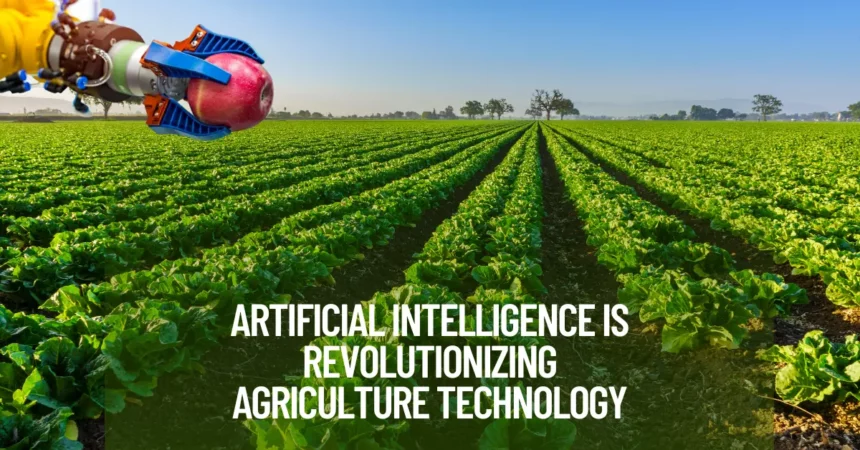As technology advances, industries worldwide are adopting new ways of working to streamline operations and enhance productivity. The agriculture industry is no exception. Over the years, the sector has undergone a significant transformation, and today, it has become an innovative industry that utilizes technology to ensure sustainability and increase yields. Artificial intelligence (AI) has become a vital tool in agriculture, and in this comprehensive guide, we will explore how AI is revolutionizing the agriculture industry.
Introduction to AI in Agriculture
AI involves the development of intelligent machines that can perform tasks that typically require human intervention. In agriculture, AI analyses and interprets data to inform decision-making, improve crop yields, and reduce environmental impacts. AI has become an essential tool in agriculture technology (AgTech), enabling farmers to make data-driven decisions, enhance crop production, and ensure food security.
Benefits of AI in Agriculture
Improved Crop Management
AI is transforming crop management, enabling farmers to make more informed decisions about planting, fertilizing, and harvesting crops. AI can monitor crop growth through data analytics and provide insights on the best planting and harvesting times. This data helps farmers optimize yields, reduce wastage, and increase profitability.
Enhanced Resource Efficiency
AI is also improving resource efficiency in agriculture. AI can inform irrigation schedules by analyzing soil conditions and moisture levels, reducing water usage and ensuring that crops receive the right amount of water. AI can also tell the use of fertilizers, reducing the chemicals required and minimizing environmental damage.
Precision Agriculture
Precision agriculture involves using data analytics and AI to optimize crop production. This includes planting, fertilizing, irrigating, and harvesting crops. Precision agriculture enables farmers to monitor crops in real-time, adjusting their practices to optimize yields and reduce environmental impacts.
Applications of AI in Agriculture
Crop Monitoring
AI-powered drones with multispectral cameras can fly over crops, collecting data on plant health, soil conditions, and weather patterns. This data is then used to optimize crop management practices, reduce wastage, and improve yields.
Soil Analysis
AI can analyze soil data, providing insights into soil health and moisture levels. This data can inform irrigation schedules, and fertilizer usage, ensuring crops receive the proper nutrients and minimizing environmental damage.
Livestock Management
AI-powered sensors can monitor livestock health, providing farmers with insights into their animals’ well-being. AI can also predict disease outbreaks, enabling farmers to take preventive measures and improve animal welfare.
Challenges in Implementing AI in Agriculture
Access to Data
To implement AI effectively, agriculture stakeholders must have access to relevant data. This includes data on weather patterns, soil health, and crop growth. Collecting and analyzing this data requires significant resources, and many farmers need more infrastructure and resources to do so.
Limited Technical Skills
Implementing AI in agriculture requires specialized technical skills, which many farmers need to gain. With adequate technical skills, farmers may be able to interpret the data generated by AI tools, limiting their ability to optimize crop production.
High Cost
Implementing AI in agriculture requires significant hardware, software, and infrastructure investment. Many farmers need more financial resources to invest in AI tools, limiting their ability to benefit from this technology.
As AI is revolutionizing agriculture technology, enabling farmers to make data-driven decisions, optimize crop production, and ensure food security. AI transforms crop management, enhances resource efficiency, and allows precision agriculture. Despite the challenges in implementing AI, the benefits of this technology cannot be overstated. As the agriculture industry evolves, AI will play an increasingly vital role in ensuring sustainability and increasing yields.









